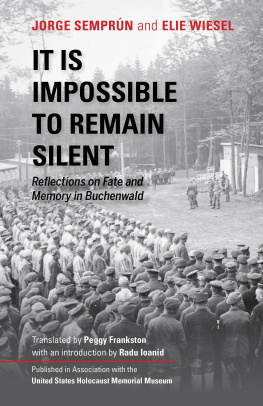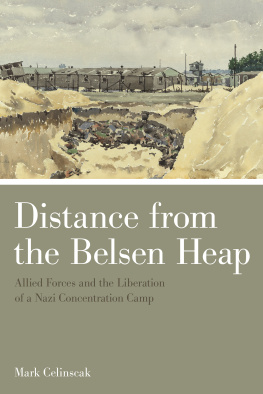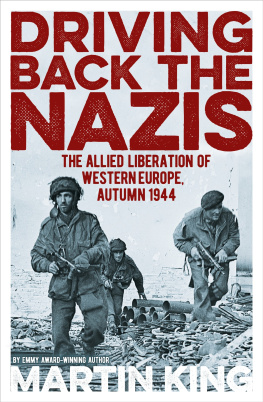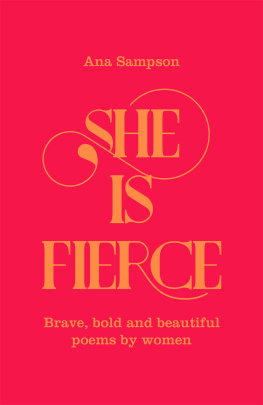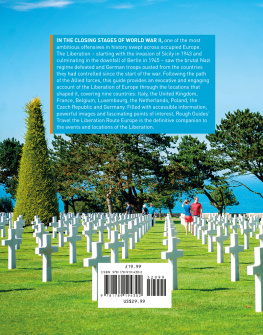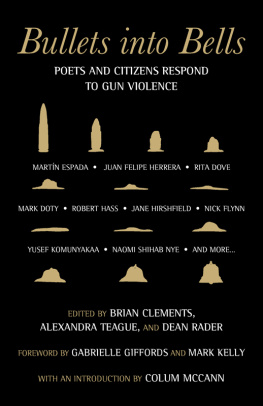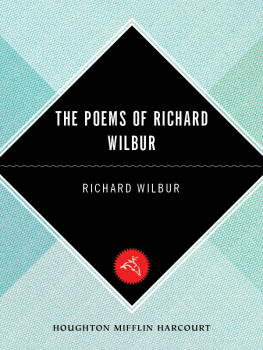LIBERATION
New Works on Freedom from
Internationally Renowned Poets Foreword by HA JIN
Edited and Introduced by MARK LUDWIG Beacon Press, Boston
Contents
PART I
so they might know what liberation is RICHARD HOFFMAN, USA
JULIE CARR, USA
SALMAN MASALHA, ARAB, ISRAEL
FADY JOUDAH, PALESTINIAN AMERICAN, USA
AFAA MICHAEL WEAVER, USA
JOHN SKOYLES, USA
JAY PARINI, USA
LULJETA LLESHANAKU, ALBANIA
OLIVER DE LA PAZ, USA
MARK YAKICH, USA
PART II
We are the drums of our ancestors hearts RITA DOVE, USA
RICHARD BERENGARTEN, ENGLAND
ANITA ENDREZZE, NATIVE AMERICAN/EUROPEAN, USA
ROBERT PINSKY, USA
DIANE GLANCY, CHEROKEE, USA
YANG JIAN, CHINA
ALAN SHAPIRO, USA
JOS ANTONIO MAZZOTTI, USA/PERU
KIRMEN URIBE, SPAIN/BASQUE COUNTRY
C. K. WILLIAMS, USA
PART III
No country Untouched RITA DOVE, USA
MEENA ALEXANDER, USA/INDIA
ESTHER BELIN, DIN (NAVAJO), USA
RICHARD M. BERLIN, USA
TINA CHANG, USA/CHINA
KWAME DAWES, GHANA/JAMAICA/USA
TSERING WANGMO DHOMPA, TIBETAN AMERICAN, USA
CAROL DINE, USA
ANITA ENDREZZE, NATIVE AMERICAN/EUROPEAN, USA
INGA GAILE, LATVIA
JAMAAL MAY, USA
AARON SAMUELS, USA
(ANONYMOUS) AFGHAN WOMEN POETS
YERMIYAHU AHRON TAUB, USA
TSERING WOESER, TIBET
PART IV
a ghost of gunmetal drones overhead DAN BEACHY-QUICK, USA
MARILYN CHIN, CHINESE AMERICAN, USA
KWAME DAWES, GHANA/JAMAICA/USA
JIRI DEDECEK, CZECH REPUBLIC
ILYA KAMINSKY, USA/UKRAINE
JAY PARINI, USA
YUSEF KOMUNYAKAA, USA
TINA CHANG, USA/CHINA
PART V
Death sails into the gilded ballroom in purple satin MILAN RICHTER, SLOVAKIA
ALMOG BEHAR, ISRAEL
RICHARD BLANCO, CUBAN AMERICAN, USA
MARIA NEGRONI, ARGENTINA
YANG JIAN, CHINA
LULJETA LLESHANAKU, ALBANIA
NICK MAKOHA, ENGLAND/UGANDA
AGI MISHOL, ISRAEL
ROBERT PINSKY, USA
LLOYD SCHWARTZ, USA
AFAA MICHAEL WEAVER, USA
MARY J. BANG, USA
RITA DOVE, USA
PART VI
Speak when broken ALMOG BEHAR, ISRAEL
ALI COBBY ECKERMANN, YANKUNYTJATJARA AUSTRALIA
JOAN HUTTON LANDIS, USA
AGI MISHOL, ISRAEL
MYRIAM MOSCONA, MEXICO
MARK YAKICH, USA
PART VII
think of the trapped wren ALMOG BEHAR, ISRAEL
MARILYN CHIN, CHINESE AMERICAN, USA
GILLIAN CLARKE, WELSH/BRITISH, UK
XUE DI, USA/CHINA
ALI COBBY ECKERMANN, YANKUNYTJATJARA AUSTRALIA
KATIE FORD, USA
FANNY HOWE, USA
WANG PING, CHINESE AMERICAN, USA
TADE IPADEOLA, NIGERIA
JUSTIN QUINN, IRELAND
PART VIII
towards a promised freedom FRANCISCO X. ALARCN, CHICANO, USA
JULIE CARR
SUZANNE LUMMIS, USA
ADRIAN MATEJKA, USA
HAN DONG, CHINA
RICHARD HOFFMAN, USA
WANG PING, CHINESE AMERICAN, USA
ERNESTO SANTANA, CUBA
DUNYA MIKHAIL, IRAQI AMERICAN, USA
MARY KIMANI, KENYA
Foreword
A MATTER OF SPIRIT This engaging volume has gathered recent poems by more than sixty poets across the world.
Many of the poems were translated from other languages, and together they represent a spirit that confronts what has damaged and still endangers human existence. Some of the poems are rooted in historical happenings, to which the poets give nuances and their own perspectives. Some are based on human drama, mostly metaphorical, without specific temporal reference. Yet one way or another, they all shed light on the theme of liberation. On the other hand, the theme of liberation creates new interpretive possibilities for these poems. As I was reading, I kept wondering how the poems could be read in such a light.
How can a poem about Whitney Houston be associated with the idea of liberation? At first glance, the connection seems tenuous. However, I soon realized that poet Kwame Dawess perception of Houstons life and death showed a lot of relevance and acute insighteven though she was a celebrity, her freedom was conditioned and limited, shaped by numerous social forces hostile to liberation. A poem like Han Dongs Story is about a couple parting ways. By nature, such a poem is metaphorical and atemporal, but if we think about it from the perspective of liberation, we can see that the couples separation, temporary or permanent, is indeed a kind of liberation. But who is liberated? Maybe the one who stays? Maybe the one who leaves? Or maybe both? Interpretive opportunities like those can be mind-opening and delightful. One feature shared by these poems is a serious engagement with the world.
In this regard, the poems demonstrate a willingness to oppose what has debased and violated humanity. Conventionally, poetry is supposed to remember so as to preserve, and in a conservative sense, it is also supposed to reconcile conflicts and inspire confidence. Many of these poems, however, break those norms and seem to perform more urgent functions. They remind us of injustice and warn us against the violence that continues to spread. Robert Pinskys lines in Poem of Disconnected Parts refer to the cycle of deadly forces embodied in a few womens lives: Becky is abandoned in 1902 and Rose dies givingBirth in 1924 and Sylvia falls in 1951. Still falling still dying still abandoned in 2005Still nothing finished among the descendants.
Indeed, facing such perpetual falling and dying, poetry must first make people aware of them. Its essential for a poet to stand aside from the collective and speak in a dissonant voice that reminds people of reason and human cost and to warn them against the destructive hands that operate overtly, often under the aegis of grandiloquent rhetoric. I would say that the strength of these poems lies in the fact that they do not avoid being useful or serving a purpose. In truth, poetry ought to be more useful nowadays, so as to become more relevant in our diminishing reading culture. While sounding strident, some of these poems still give a lot of pleasure and celebrate our existence. They remind us of the joy of being alive and able to work and do something decent.
They compel us to appreciate the possibilities of life while commiserating with those who are deprived of them. They are moving partly because they show that we still can dream and sing. These lines from Anita Endrezzes poem There Is No Cure for MS exemplify an imagined happiness: If there was a way to liberate my bodyfrom disease, Id dance across lily pads,balanced between sky and water. If I knew the abracadabra that cures,Id follow the sun across mountains,laughing at the magic of walking. Id quicken my veins with lightning. If if if I could be healed,Id sing of the shining pathshummingbirds tracein the fragrant air O Joy!and strum the spell-bound moonwith my slender fingers.
Lines like those display an indomitable spirit in confronting the adversary forces that diminish humanity. That is a kind of triumph. HA JIN
Introduction
LIBERATION On May 8, 1945, the Terezn (Theresienstadt) concentration camp was the last of the more than 42,500 Nazi camps and ghettos to be liberated. Among this network of mass annihilation there were extermination centers, concentration camps, forced labor camps, Jewish ghettos, POW camps, and T-4 euthanasia sites. Between 1933 and 1945, fifteen to twenty million people died or were imprisoned in this constellation of unfathomable horrors, brutality, and deprivation. The victims included much of European Jewry, as well as political dissidents, homosexuals, Sinti and Roma, and POWs.
Their liberation seventy years ago was the inspiration behind this initiative to create a Liberation Project for poetry and music on a global scale. Over the course of the last two years, I have reached out to poets around the world to invite them to participate. Their only instruction was to create a new work based on the theme of liberation, what it meant to them and how it resonated and manifested in their own life experience. I have been deeply humbled not only by the overwhelming response from this group of artists, but also by the gift of interacting with each and every one of them. This anthology includes more than sixty poets from twenty-seven countries offering a worldview of what liberation means to some of the great voices and minds of our age. The collection is also meant to illustrate the human yearning for freedom and the right to determine our own destinies.


